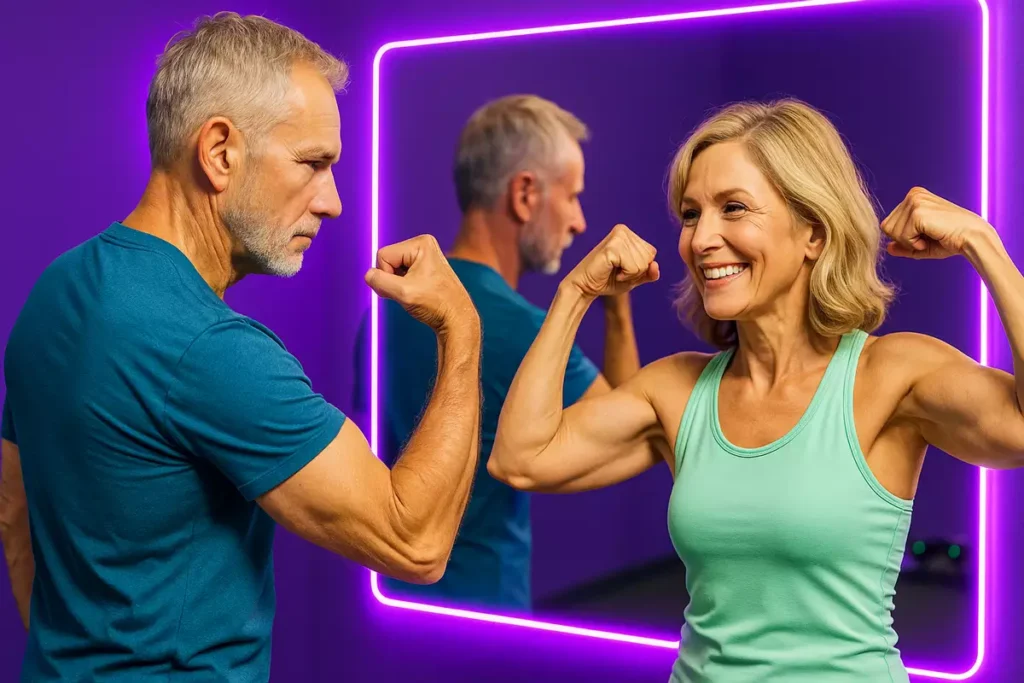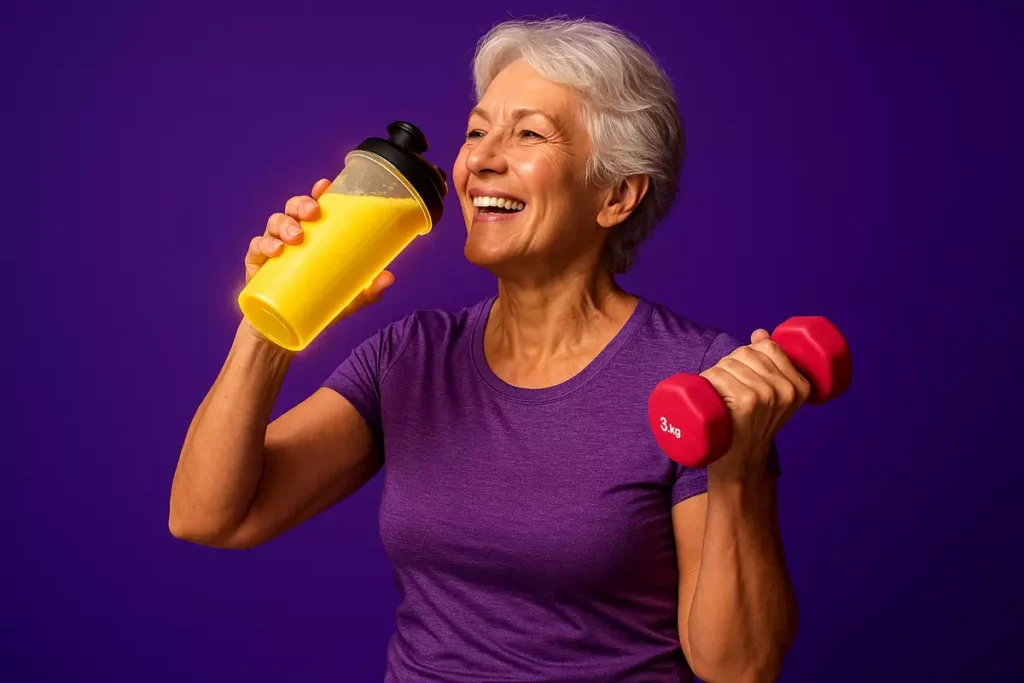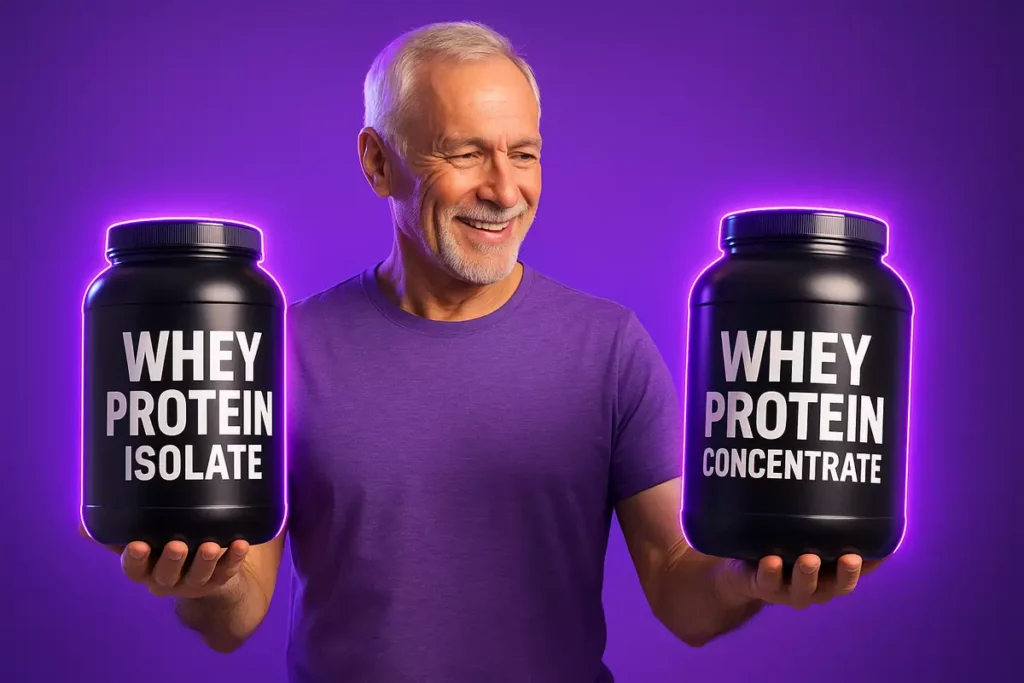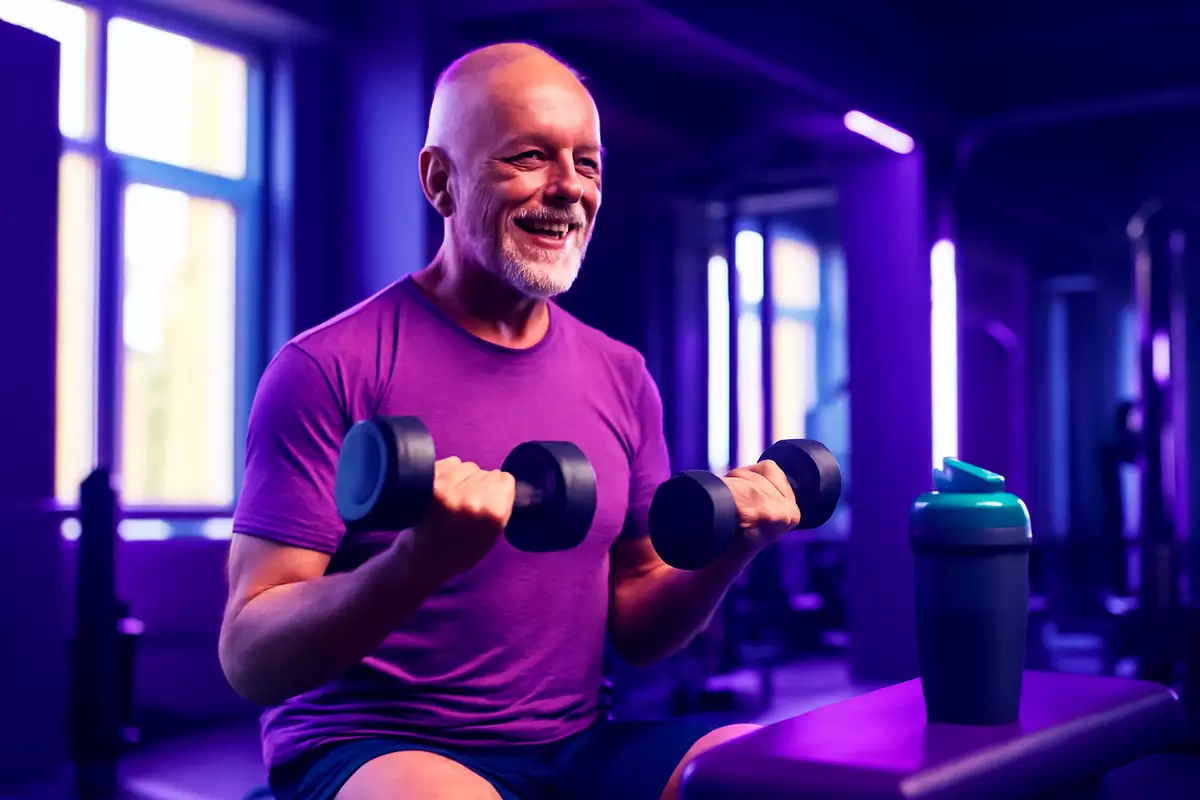Staying strong and active as you age isn’t just about training harder—it’s about fueling smarter.
For senior athletes, whey protein can be the game-changer. It helps fight muscle loss, speeds up recovery, and supports long-term health.
Backed by science and proven in real life, whey protein is one of the safest and most effective supplements to keep seniors performing at their best.
Table of contents
Should Seniors Use Whey Protein?
Absolutely. From my experience as a trainer, whey protein is one of the most effective and safe supplements for older athletes.
It helps fight age-related muscle loss, supports faster recovery, and keeps you stronger and more active well into your senior years.
I’ve seen clients in their 50s, 60s, and even 70s experience noticeable improvements when they consistently add whey protein to their diet.
Why Muscle Loss Happens With Age

As we age, our bodies naturally experience sarcopenia—a gradual loss of muscle mass and strength.
Protein synthesis slows down, recovery takes longer, and it becomes harder to maintain the same performance. Without enough high-quality protein, this process accelerates.
I’ve seen this first-hand. Many of my senior clients train hard but struggle to hold onto muscle without adjusting their nutrition. That’s where whey protein steps in.
(You can also read my guide on whey protein myths vs facts to better understand common misconceptions.)
How Whey Protein Helps Senior Athletes
Whey is fast-digesting and rich in leucine, the amino acid that directly stimulates muscle protein synthesis.
It helps seniors:
- Rebuild muscle after workouts
- Maintain lean mass while losing fat
- Support bone health
- Strengthen the immune system
For example, Michael, a 62-year-old tennis player I coached, was constantly tired and losing muscle tone.
After adding a simple 25g whey shake post-training, he noticed more strength on the court and less soreness within a few months.
(For more, see how whey protein also helps in post-surgery recovery.)
Best Times to Take Whey Protein for Seniors

Timing makes a difference. I recommend two main options:
- Post-workout: Fast absorption helps muscles recover immediately.
- Morning or between meals: Keeps protein levels steady and prevents muscle breakdown during the day.
One of my clients, Atsuko (58), started blending whey into her morning smoothie with fruit and oats.
She told me she felt energized all morning and recovered faster from her yoga and light strength workouts.
(If you’re new, here’s my guide on the best whey protein for beginners.)
How Much Whey Protein Should Seniors Take?
Most seniors do well with 20–30g per serving, depending on their body weight and training.
That’s usually one scoop of a good-quality whey protein.
Personally, I often split protein intake across the day. A shake after training, plus another small serving in the morning or afternoon, works best for both recovery and long-term muscle preservation.
(If you’re in a fat-loss phase, see my breakdown of the best whey protein for cutting.)
Choosing the Right Whey Protein

Not all whey proteins are the same. Here’s my advice:
- Whey isolate: Best for seniors because it’s easier to digest and almost lactose-free.
- Whey concentrate: Fine if you tolerate lactose well, but some seniors experience bloating.
Claudia, a 65-year-old runner I worked with, struggled with concentrate and always felt heavy after drinking it.
We switched her to whey isolate, and her digestion issues disappeared.
Also, look for products with third-party testing, clear labeling, and ideally added vitamin D or calcium for extra bone support.
(Read my full guide on how to choose the right whey protein.)
Practical Tips for Seniors
Here’s how to get the most out of whey protein:
- Pair it with resistance training—nothing preserves muscle better.
- Add whey to balanced meals—smoothies, oatmeal, or even stirred into yogurt.
- Stay hydrated and watch how your stomach feels after trying a new brand.
Rajesh, 60, who trained with me twice a week, noticed fewer colds and a more stable energy level after consistently using whey.
Another client, Helen (67), improved her bone density score after a year of training with whey protein and vitamin D.
(You may also wonder about storage. Here’s what you should know about whey protein shelf life after opening.)
Final Take: Trainer’s Advice
As a coach and athlete myself, I can say with confidence: whey protein is one of the best supplements for senior athletes.
It’s not about chasing bodybuilding physiques—it’s about staying strong, mobile, and independent as you age.
If you’re over 50 and serious about health, try whey consistently for 8–12 weeks alongside your training.
Like I tell all my clients: the results speak for themselves. More energy, less soreness, and the ability to keep doing what you love—whether it’s tennis, yoga, weightlifting, or simply playing with your grandkids.
(And if you’re curious about younger athletes, you can also check my take on whey protein safety for teenagers.)



Leave a Reply